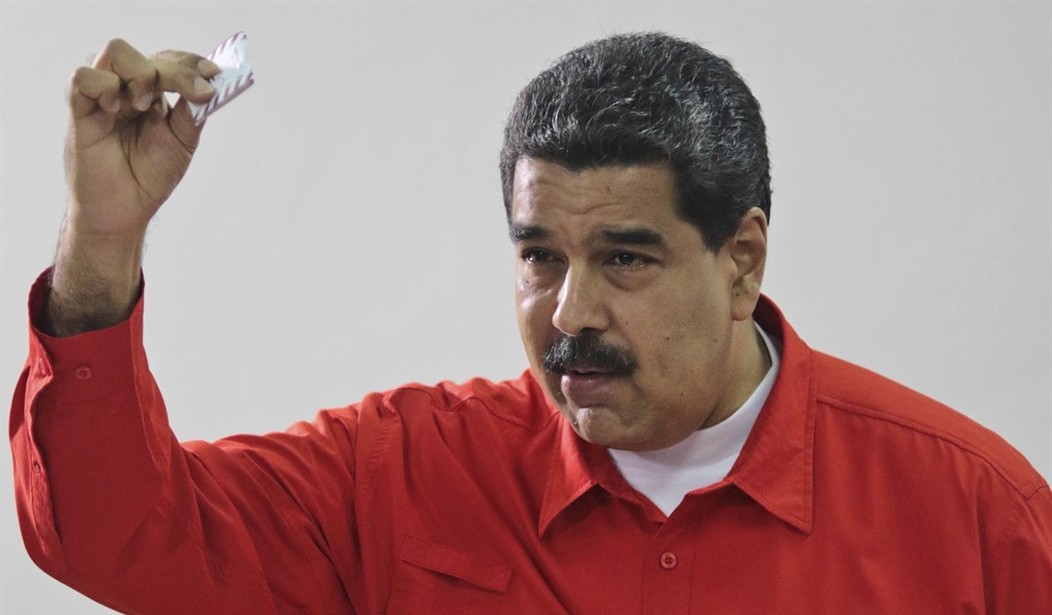Hannah Dreier is a reporter for the Associated Press who has been covering the situation in Venezuela since 2014. Today, Politico Magazine published an interview with her in which she describes how she started out thinking the stories of Venezuela’s decline were exaggerated but gradually came to realize the country was falling apart:
I spent my first year there really trying to argue that it wasn’t collapsing, because there was already this narrative that it was a dictatorship where people were starving. And that’s not what I initially saw. Maduro had just won an election. It was a very polarized place, but half of the country supported him. And, people were on diets. There was a super-abundance of food…
And, I think it wasn’t until the people in my life started to lose weight that I really realized that things had changed. And then, people that I knew started to be robbed regularly.
Dreier experienced this change herself when she was robbed on the street in broad daylight and later when she was kidnapped by the secret police:
I mean, there was just no way to insulate yourself from the crisis when you were there. And the thing you really can’t insulate yourself from is violence. So, I was robbed in broad daylight a couple of blocks from where I lived by two men on a motorcycle, and I kind of saw them coming and thought they might rob me, because that was happening to a lot of people at the time, and then they did. And when I told my friends about it, they were, like, “Oh, that was a good robbery. Nobody got hurt. That was good and simple.” And so your standards just start to change…
The same thing happened when the secret police grabbed me one day. I was in detention for a few hours and they made all these threats—like, they said they were going to slit my throat; they said they were going to keep me for weeks and weeks; they said I had to stay there until I married one of them—and when I got out, I told my friends, and they thought it was super funny. So, I also started joking about it, and we got drinks, and it was just like another thing that happened.
Dreier makes clear that while many people still love deceased President Hugo Chavez, almost no one loves President Maduro. Maduro’s rule has been characterized by sheer incompetence:
This is the most irresponsible thing I’ve ever seen—there was a day last year where the government invalidated that bank note, the hundred bolivar, which is all people were using at that point. There was no sense using anything lower than that because it was like a fraction of a fraction of a penny, so people were only using hundred bolivar notes, and we all had hoarded supplies.
And the government said, “You know what? Today you can’t use that anymore. It has no value.” And they didn’t issue a new note. So there were three days where you couldn’t pay for anything, and that day I needed to take a taxi, but I couldn’t. I needed to recharge my phone; I needed to put some more minutes on it—I couldn’t. Nobody could go out to eat. And there were riots. There was a riot in one city that destroyed more than a hundred stores, because people couldn’t buy anything, and so they just went out and started taking things.
And finally, after three days the government sent the military out to pacify the country, and said, “OK, fine. You can use your hundred bolivar notes again.” But, I mean, the whole country just ground to a halt for no reason.
As for what comes next, Dreier is not very optimistic about the country’s future. She tells Politico, “my experience down there has, if it’s taught me one thing, it’s taught me things can always get worse, and worse, and worse.” She adds, “there’s no rule that says that a miserable situation has to end, just because it’s too miserable.” The clampdown on opposition figures that has happened in the past week seems to prove Dreier is right about that. In Venezuela, things just keep getting worse.








Join the conversation as a VIP Member